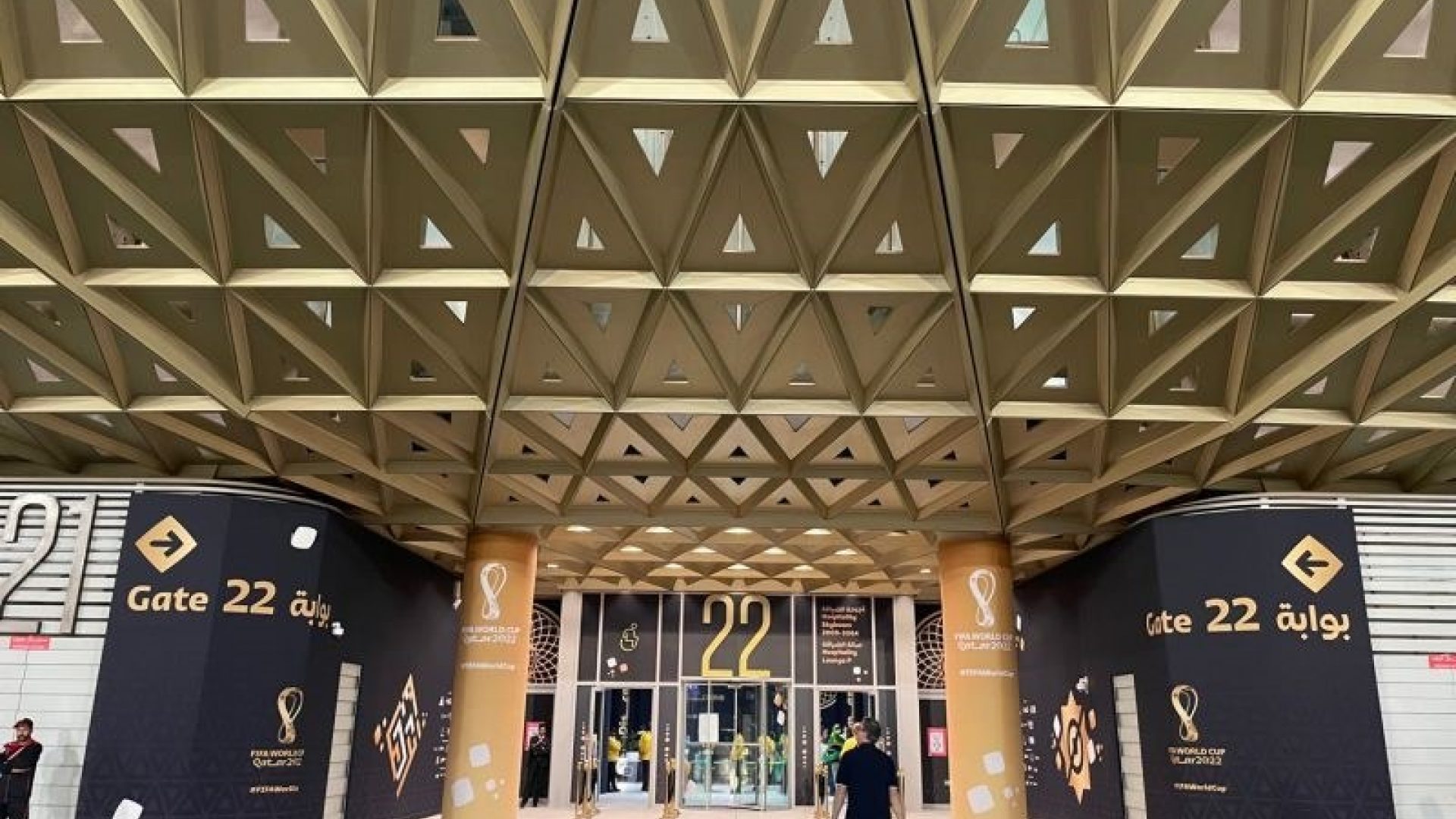AFL director John Roberts and associate director Marcel Ridyard reflect on their time in Qatar and the long term economic and social impact of the World Cup on the country.
We are just back from the FIFA 2022 World Cup – both a personal pilgrimage for John to see the Welsh team play at an international level and a professional one for both of us to see the Lusail Stadium, that the AFL team has been involved in the design of since 2016, fulfil its ambition to be one of the most specular sports stadia in the world. And it certainly did just that – an impressive 80,000 capacity, the 5thlargest stadium in the world with its golden bowl exterior, the feeling that you get as you approach the stadium is nothing short of breath taking.
As we write this the final of the FIFA World Cup is just about to take place at this very stadium. And surely whatever team wins will share that celebration with the people of Qatar? As well as hosting a global football tournament, the creation of the stadia surrounding the tournament, and the infrastructure around those stadia will set Qatar on the map for future sporting venues. In fact, we know that that is already happening with Qatar already having secured the Asian Cup for next year.
As architects this is our legacy. Of course, there is the thrill and anticipation of seeing our designs come to fruition – in this case visiting Doha and observing how our delivery designs have been incorporated into the Lusail Stadium. Yet, far more is seeing how from in 2013 when we first visited Qatar how the country has changed. From not having a national transportation system to travel around the country, to having built a whole metro system, a bus service, roads, and a travel infrastructure that smoothly and efficiently brings accessibility for all. From now being on its way to becoming as sustainable destination, less dependent on its production of oil, but a destination for events and leisure. And of course, for creating an economy surrounding the stadia including jobs for those running the stadia, maintaining it, the catering and administration and all. It is similar to what our friends in Wrexham FC have achieved in North Wales – more than just a plan for an amazing sporting destination but raising the awareness of its heritage and the city, attracting tourism and visitors and creating employment opportunities for locals.
Watching the final being played on Sunday, we will celebrate whatever the outcome and feel privileged to have played a part of the success of this spectacular stadium - the centrepiece of the Fifa 2022 World Cup.

